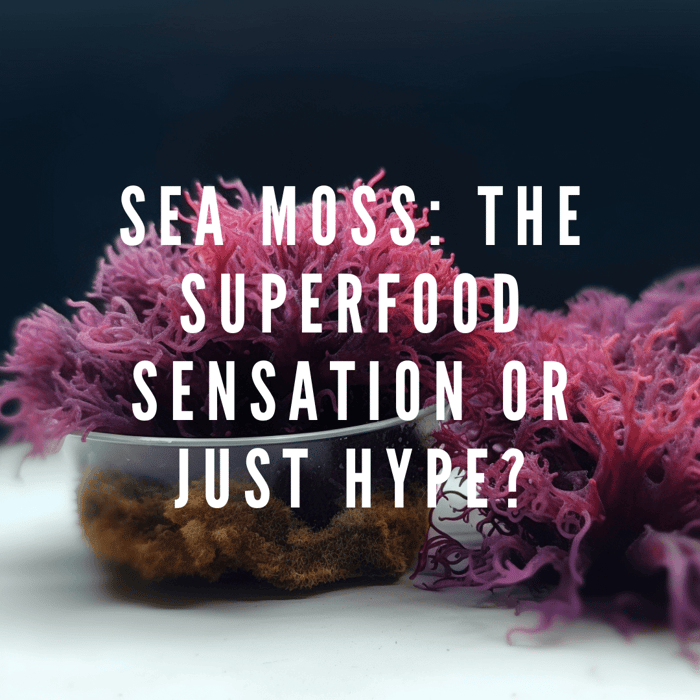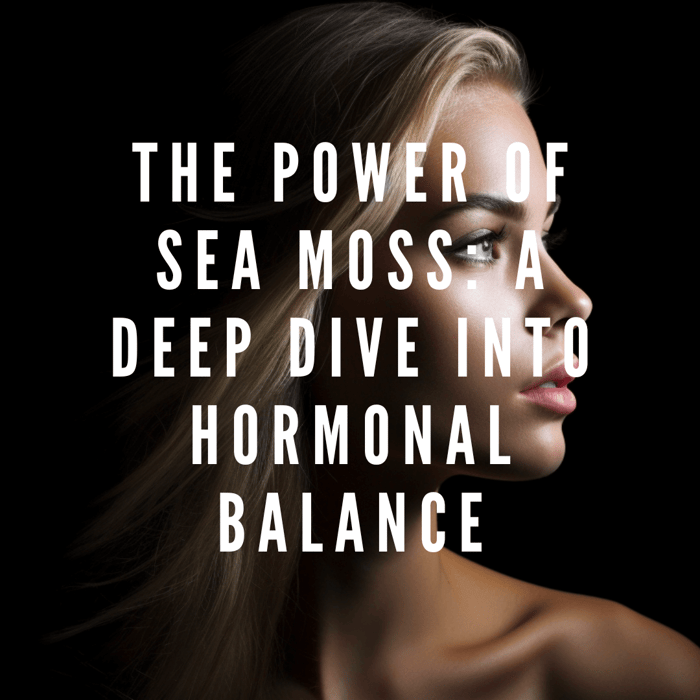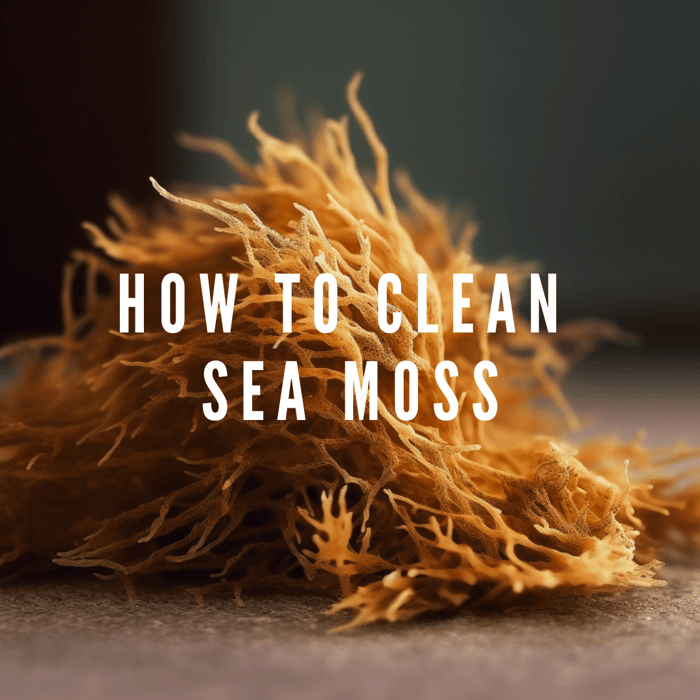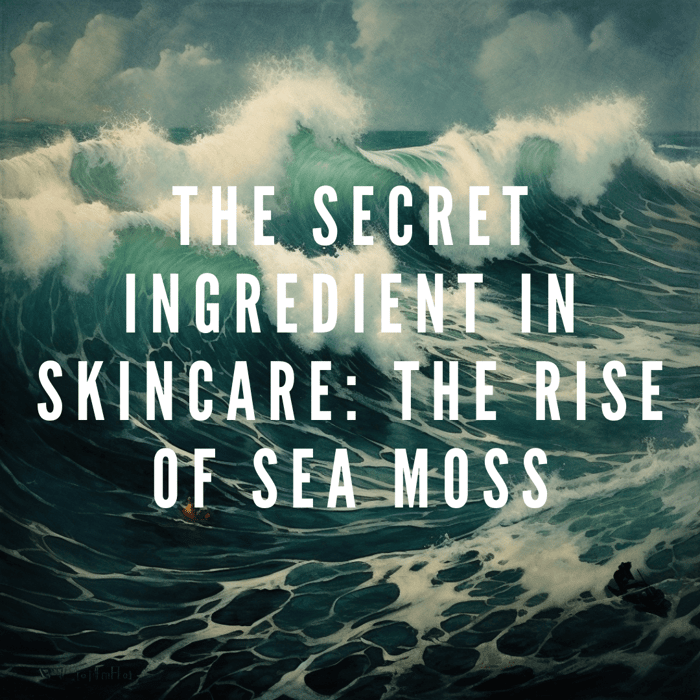Table of Contents
Introduction
The term superfood has become a buzzword in the health and wellness industry, often used to describe foods with high nutritional density and potential health benefits. But is every so-called superfood deserving of this title? One such food that has been making waves recently is sea moss. But is sea moss truly a superfood, or is it just another trend fueled by hype? Let's delve into the details.

Background Information on Sea Moss
Sea moss, also known as Irish moss, is a type of red algae that grows in the Atlantic coastlines of North America, Europe, and the Caribbean Islands. It has been used for centuries due to its high nutrient content and potential health benefits.
History and Origin of Sea Moss
Sea moss has a long history of use, particularly in Ireland, where it was used during the Irish Potato Famine in the 19th century as a source of nutrition. It was also traditionally used as a natural remedy for various ailments, including respiratory issues and skin conditions.
Traditional Uses of Sea Moss
Traditionally, sea moss has been used as a food thickener and source of nutrients. It is also a common ingredient in skin products due to its high mineral content and hydrating properties.

Nutritional Composition of Sea Moss
Sea moss is known for its impressive nutritional profile. It is rich in vitamins and minerals, including iodine, calcium, potassium, and magnesium. It also contains a variety of trace elements and antioxidants.
The Case For Sea Moss Being a Superfood
Given its nutritional composition, it's no surprise that sea moss has been touted as a superfood. Let's explore the nutrients found in sea moss and their potential health benefits.
Vitamins and Minerals
Sea moss is packed with vitamins and minerals. It's particularly rich in vitamin C, which is known for its immune-boosting properties, and B vitamins, which are essential for energy production and brain health. Additionally, it contains minerals like magnesium and potassium that are crucial for heart health.
Iodine and Its Benefits
One of the standout nutrients in sea moss is iodine. This mineral is essential for thyroid function, which regulates metabolism and growth. A deficiency in iodine can lead to thyroid problems, making sea moss a beneficial addition to the diet for those who need to boost their iodine intake.

Other Nutrients and Their Benefits
Beyond vitamins and minerals, sea moss also contains compounds like taurine, an amino acid that's essential for brain health, and algin, a type of dietary fiber that can aid digestion.
Evidence from Scientific Studies Supporting Health Benefits
While research on sea moss is still in its early stages, some studies suggest that it may offer health benefits. For instance, a study published in the Journal of Medicinal Food found that sea moss could have prebiotic effects, potentially improving gut health. Other research suggests that sea moss may have immune-boosting properties.
Popular Perceptions and Anecdotal Evidence Supporting Sea Moss as a Superfood
Many people swear by the health benefits of sea moss, claiming that it boosts energy, improves skin health, and aids digestion. While these claims are largely anecdotal, they contribute to the perception of sea moss as a superfood.

The Case Against Sea Moss Being a Superfood
Despite the potential benefits of sea moss, there are also arguments against its superfood status. Let's examine these critiques.
Critiques of the Concept of Superfoods
Some health professionals argue that the term "superfood" is more of a marketing term than a scientific one. They point out that while certain foods may be rich in specific nutrients, no single food can provide all the nutrients our bodies need. Therefore, a varied and balanced diet is more important than focusing on individual superfoods.
Examination of Scientific Studies That Contradict or Do Not Support the Health Claims
While some studies suggest potential health benefits of sea moss, others do not support these claims. For instance, a review published in the Journal of Dietary Supplements found insufficient evidence to support the use of sea moss for disease prevention or treatment. More research is needed to confirm the health benefits of sea moss.
Debunking the Hype
Given the conflicting views on sea moss, it's important to separate the hype from the facts. Let's discuss the influence of marketing and celebrity endorsements on superfood trends, and examine the difference between consuming sea moss and getting nutrients from a varied diet.
Influence of Marketing and Celebrity Endorsements
It's no secret that marketing and celebrity endorsements play a big role in shaping food trends. Sea moss has been promoted by various celebrities, which has undoubtedly contributed to its popularity. However, it's crucial to remember that just because a food is trendy or endorsed by a celebrity doesn't necessarily mean it's a superfood.
Consuming Sea Moss vs. a Varied Diet
While sea moss is nutrient-dense, it's not a substitute for a varied diet. A balanced diet that includes a variety of fruits, vegetables, whole grains, lean proteins, and healthy fats will provide a wide range of nutrients that can't be obtained from sea moss alone.

Individual Health, Diet, and Lifestyle Needs
Whether sea moss is beneficial for you also depends on your individual health, diet, and lifestyle needs. For instance, if you already get enough iodine from other sources, consuming sea moss may lead to an excess of this mineral. Therefore, it's important to consider your personal dietary needs and consult with a healthcare professional before incorporating sea moss into your diet.
Conclusion
So, is sea moss a superfood? The answer isn't straightforward. While sea moss is nutrient-dense and may offer certain health benefits, it's not a magic bullet for health. It's also important to consider potential risks and individual dietary needs. As always, it's recommended to consult with a healthcare professional before making significant changes to your diet.
Further Research and Consultation
Before incorporating sea moss into your diet, it's important to do your own research and consult with a healthcare professional. You can start by checking out our collection of sea moss gels and organic golden sea moss.
FAQs
- Is sea moss scientifically proven to be good for you?
- While some studies suggest potential health benefits of sea moss, more research is needed to confirm these claims.
- What do scientists say about sea moss?
- Scientists acknowledge the nutritional value of sea moss, but more research is needed to substantiate the health claims associated with it.
- Are there downsides to eating sea moss?
- Potential downsides include iodine overconsumption and the risk of heavy metal contamination. It's also possible to have an allergic reaction to sea moss.
- Is sea moss the healthiest?
- While sea moss is nutrient-dense, no single food can provide all the nutrients our bodies need. A varied and balanced diet is more important.
- Do doctors recommend sea moss?
- Some doctors may recommend sea moss for its nutritional content, but it's always best to consult with a healthcare professional before making significant changes to your diet.
 is here! Shop now, pay later in 4 easy installments
is here! Shop now, pay later in 4 easy installments



